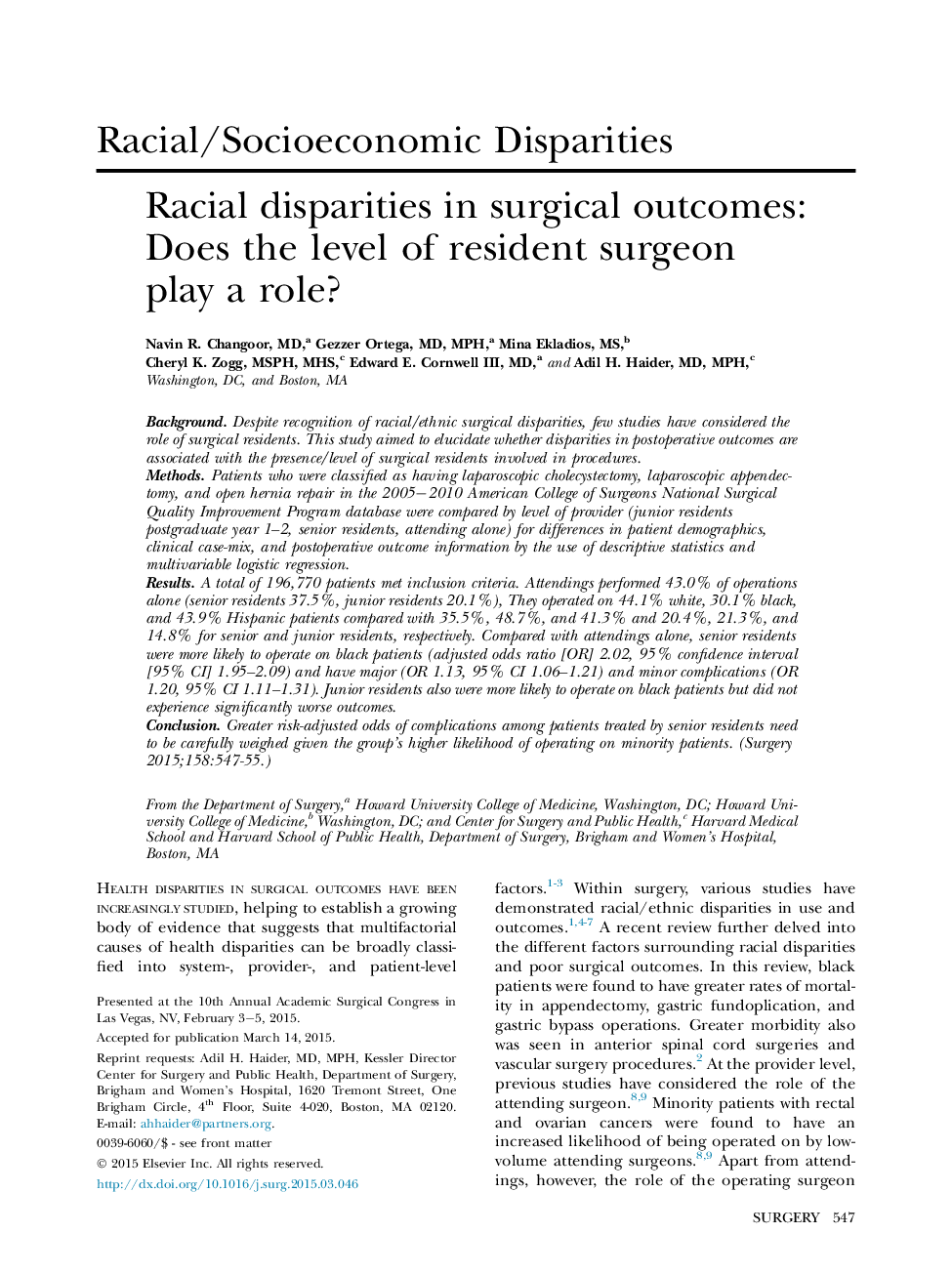| Article ID | Journal | Published Year | Pages | File Type |
|---|---|---|---|---|
| 4307027 | Surgery | 2015 | 9 Pages |
BackgroundDespite recognition of racial/ethnic surgical disparities, few studies have considered the role of surgical residents. This study aimed to elucidate whether disparities in postoperative outcomes are associated with the presence/level of surgical residents involved in procedures.MethodsPatients who were classified as having laparoscopic cholecystectomy, laparoscopic appendectomy, and open hernia repair in the 2005−2010 American College of Surgeons National Surgical Quality Improvement Program database were compared by level of provider (junior residents postgraduate year 1–2, senior residents, attending alone) for differences in patient demographics, clinical case-mix, and postoperative outcome information by the use of descriptive statistics and multivariable logistic regression.ResultsA total of 196,770 patients met inclusion criteria. Attendings performed 43.0% of operations alone (senior residents 37.5%, junior residents 20.1%), They operated on 44.1% white, 30.1% black, and 43.9% Hispanic patients compared with 35.5%, 48.7%, and 41.3% and 20.4%, 21.3%, and 14.8% for senior and junior residents, respectively. Compared with attendings alone, senior residents were more likely to operate on black patients (adjusted odds ratio [OR] 2.02, 95% confidence interval [95% CI] 1.95–2.09) and have major (OR 1.13, 95% CI 1.06–1.21) and minor complications (OR 1.20, 95% CI 1.11–1.31). Junior residents also were more likely to operate on black patients but did not experience significantly worse outcomes.ConclusionGreater risk-adjusted odds of complications among patients treated by senior residents need to be carefully weighed given the group's higher likelihood of operating on minority patients.
